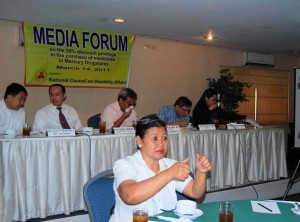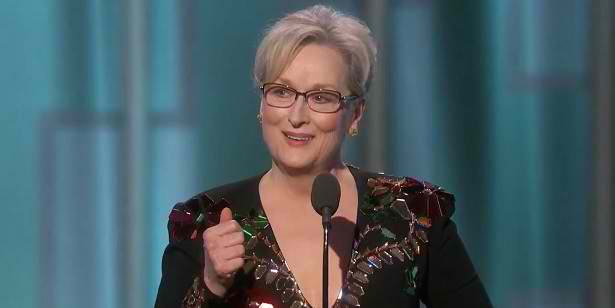By ARIEL C. SEBELLINO
 IN this country where there is hardly any socialized medical care, it’s a huge financial burden to get sick or be disabled.
IN this country where there is hardly any socialized medical care, it’s a huge financial burden to get sick or be disabled.
At a recent forum hosted by the National Council on Disability Affairs (NCDA) with drugstores, representatives of Persons with Disabilities (PWD) complained of being refused discounts on medicines they were buying.
Just like a senior citizen, a disabled person is entitled to a 20 percent discount on medicines from any drugstore anywhere in the country and on medical services in all government facilities pursuant to Republic Act No. 9442, or the amended Magna Carta for disabled persons.
The law defines PWD as “those suffering from restriction of different abilities, as a result of a mental, physical or sensory impairment, in performing an activity in the manner or within the range considered normal for a human being.” There is an estimated 8.8 million persons with disabilities in the country.
The Katipunan ng mga may Kapansanan sa Pilipinas (KAMPI) expressed disappointment over the refusal of drugstores like Mercury Drug to give discounts to PWDs.
“There are many Mercury outlets in the Philippines; Not one of them honor our cards or give discounts,” Josephine Rivera, KAMPI national president, said. “It is an industry leader obviously. Other smaller drugstores can give discounts, why can’t Mercury?”
There are close to 800 Mercury Drug outlets in the country. The leading drugstore takes pride in having a complete line and variety of hard-to-find brands of medicines.
Mercury Drug Director for Administration Edsel Manuel said they will start granting the mandatory 20 percent discount to persons with disabilities on May 1 this year in all its outlets nationwide.
Manuel said Mercury Drug originally sought for a six-month moratorium considering that the change in the point of sale (POS) system takes considerable time and entails a tedious process for its implementation.
“We are willing to honor (the discount card) when our systems are already in place. We ask that we be given time to (do) this,” he said.
Manuel also expressed discontent over the tax reduction mechanism as opposed to tax credit drugstores could avail of in lieu of the 20 percent discount on medicine they are required to give.
“We do not want to incur losses. Mercury needs to survive,” he said.
Lawyer Erwin Mendinueto from the Law Division of the Bureau of Internal Revenue (BIR) said Mercury Drug should abide by the law. “It is the law. We give tax reduction only. We cannot change it,” he said.
Meanwhile, the Department of Health (DOH) called on citizens to report cases of abuse and violation of the law. It issued Administrative Order No. 2009-0011 in May 2009, which sets the guidelines on the availment by PWDs of the 20 percent discount on medical services and medicines.
Dr. Franklin Diza, DOH program manager for PWD, said: “The law is very clear as well as the implementing rules and regulations.”
In a memorandum of agreement signed with the Committee on Social Services of the House of Representatives in March 2011, the drugstore chain has been granted not later than one month from the date of its signing to give the 20 percent discount to PWDs.
Mercury Drug said it also shares the sentiments of other members of the Drugstore Association of the Philippines, Inc. (DSAPI) that the law needs to be reviewed.
“The senior citizen card has been subject to abuses,” Manuel said. “We do not want this to happen to the PWD card.”
The drug company has recommended burden-sharing, where manufacturer and pharmaceutical companies should also share the tax burden.
Rizalito Sanchez, chief for information, education and communication division of NCDA, which is under the Office of the President, said that it is necessary for the Council to provide a proper forum for all sectors to be heard.
Fredeswina Javier said her autistic son who now works as administrative assistant in a hotel was never dependent on medication but he still undergoes therapies to this day. “I can just imagine how many countless parents need to buy medicines on a regular basis for their children who have maladies,”she said.
Jojo Esposa Jr., training director of the Manila Christian Computer Institute for the Deaf College of Technology in Quezon City, said the deaf also needs to buy medicines for ear infections that usually go with auditory defects.
Mike Jose, a sixty-year-old polio victim lamented that since he got his identification card in 2009, he has yet to take advantage of it. “I have been a victim of the viral polio since I was one year old. I am hoping that I can still avail of the discount for my medicines and therapies in my lifetime,” he said.


